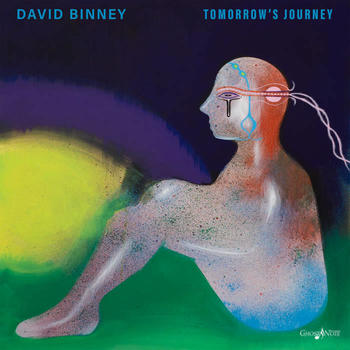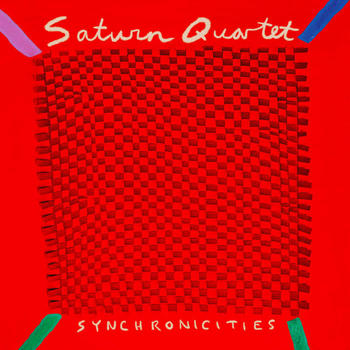David Binney, "Tomorrow's Journey" (Ghost Note)
David Binney is an accomplished 60-year-old alto saxist who likes to collaborate with brilliant young musicians. Speculations on the reasons: 1) Like Miles Davis, he digs the energy (though Binney has plenty of his own). 2) Binney finds that youthful emotion balances out his brainy proclivities. 3) As someone who's spent a lot of time in both New York and California (recently the latter), he's looking for universality in players who've established no commitments.
A listen to "Tomorrow's Journey" reveals that the young tigers (and vet percussionist Kenny Wollesen) enjoy teaming up with Binney just as much. One appeal is the challenge of working out the complexities of the usually long tunes. The title track, for instance, includes everything from bird twitters to cathedral organ and stop-start counterpoint -- sort of a West Coast jazz epic with an avant edge. Or take the retreats, suspensions, spars and jams of "Opal," such an idiosyncratic piece that it's hard to imagine someone "composing" it. "Cali Culture," on the other hand, a collaboration with Ambrose Akinmusire, is active yet laid back and genteel; you can almost smell the fruit punch.
Having the most fun: drummer Benjamin Ring, who slambashes all over the place constantly yet keeps metronomic time. Close second goes to Binney himself, whose hard-ripping alto lines and tonal variations make him sound free enough alongside the expressive piano of Paul Cornish or Luca Mendoza to conjure flashbacks of Jimmy Lyons with Cecil Taylor. Texture abounds with two basses (Ethan Moffit and Logan Kane) and two brass (Aaron Janik and Jon Hatamiya).
Make no mistake, this is mostly coffee music, not cocktail hour. Advised dose is one or two tracks at a time, and it helps if you know music. Or math.
Listen/buy here.
Saturn Quartet, "Synchronicities"
Lotta latter-day musicians have tried to retrieve the family joy of jazz circa 1960; Saturn Quartet show how vital it is to get past the trying. SQ have located in New Orleans, which might have helped ease the process, but you can tell they possess special gifts for listening, leaving space and relaxing.
One well-chosen cover tells a big story. How do you attempt "Moon River," the 1961 Mercer-Mancini classic from "Breakfast at Tiffany's," without falling into the water? Pianist Brendan Polk frames the perfect ballad, front and back, with unrelated melodies/chords of his own to mirror the naive yearning that ran in Grandpa's blood, and somehow it's not heresy. Saxist Ricardo Pascal and bassist Robin Sherman enter with a hesitant heartbeat writhing against the youthful aspiration, and intelligent drummer Gerald Watkins Jr. whispers the barest of brushes (because. nothing. else. is. required.). A statement of emotion you can't help but embrace.
These gentlemen are also real composers. Every song -- "Inspiration" and "Nita" for instance -- has a memorable sax or piano figure, as well as chord variations you'll barely notice until the urge for another spin creeps up; this is the value of Saturn's low-key approach. Some songs you can experience, such as "Jenny Wren," where you hear unanswered questions and see floating balloons that finally fly away into the sky. Some songs you can feel, such as the Ellingtonian "Aftermath," which turns gently from brokenhearted love to a triumphant smile.
"Synchronicities" has a good full sound, too, proudly recorded on 1/8-inch tape. Album length 35 minutes, like back when.
Saturn Quartet have not just learned the jazz tradition, they sit in it like an old armchair. You can do the same.
Listen/buy here.


